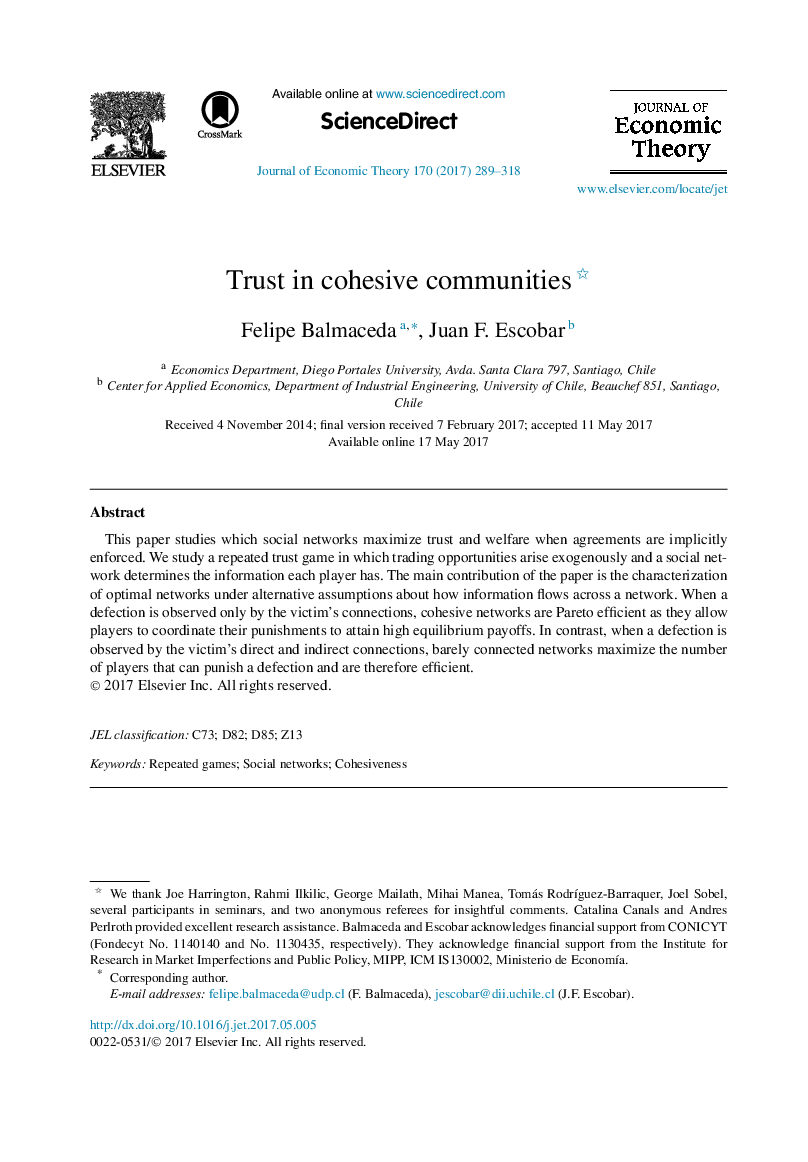| Article ID | Journal | Published Year | Pages | File Type |
|---|---|---|---|---|
| 5100082 | Journal of Economic Theory | 2017 | 30 Pages |
Abstract
This paper studies which social networks maximize trust and welfare when agreements are implicitly enforced. We study a repeated trust game in which trading opportunities arise exogenously and a social network determines the information each player has. The main contribution of the paper is the characterization of optimal networks under alternative assumptions about how information flows across a network. When a defection is observed only by the victim's connections, cohesive networks are Pareto efficient as they allow players to coordinate their punishments to attain high equilibrium payoffs. In contrast, when a defection is observed by the victim's direct and indirect connections, barely connected networks maximize the number of players that can punish a defection and are therefore efficient.
Related Topics
Social Sciences and Humanities
Economics, Econometrics and Finance
Economics and Econometrics
Authors
Felipe Balmaceda, Juan F. Escobar,
